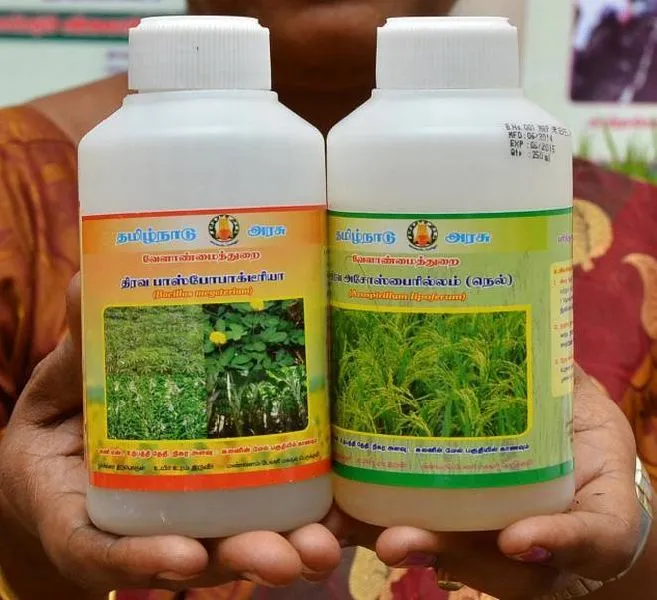
Brazil’s Fertiliser Future at a Crossroads: Planet Tracker Urges Shift Toward Sustainable Agriculture
National Fertiliser A new in-depth analysis from Planet Tracker has cast a critical spotlight on Brazil’s National Fertiliser Plan (Plano Nacional de Fertilizantes – PNF), revealing that while the initiative seeks to reduce Brazil’s dependency on imported synthetic fertilisers, it fails to adequately address the broader and more pressing concern: the overuse of synthetic fertilisers and their profound implications for climate, nature, and public health.
Currently, National Fertiliser Brazil imports approximately 86% of the fertilisers it consumes, making it heavily reliant on external supply chains. The PNF was introduced to reduce this dependence, primarily by encouraging increased domestic production. However, according to the Planet Tracker report titled Brazil’s Fertiliser Risks: Identifying Innovation and Investment Opportunities, the plan misses a crucial opportunity to reduce the overall use of synthetic fertilisers, which are major contributors to environmental degradation and greenhouse gas (GHG) emissions.
The Environmental and Economic Toll of Synthetic Fertiliser Overuse
Synthetic fertilisers, though integral to modern high-yield agriculture, are also a leading source of pollution. The report finds that these inputs are responsible for emitting between 79 and 83 million tonnes of CO2 equivalent (CO2e) annually—representing around 7% of Brazil’s total greenhouse gas emissions as of 2021. Notably, 47% of these emissions stem from the manufacturing processes of imported fertilisers.
National Fertiliser The environmental impact extends beyond emissions. Excessive use of synthetic fertilisers leads to water pollution, soil degradation, and biodiversity loss. These changes threaten Brazil’s natural capital, which underpins its vast and globally significant agribusiness sector. The decline in ecosystem health directly undermines the productivity of agricultural lands and puts long-term food security at risk.
National Fertiliser In financial terms, this degradation also presents a growing risk for investors. The agricultural sector’s vulnerability to climate change and ecological decline could impact returns on investments tied to Brazilian commodities, agriculture-linked bonds, and development loans.
A Flawed Path to Self-Sufficiency
National Fertiliser One of the more controversial elements of the PNF is its emphasis on expanding domestic fertiliser production. Planet Tracker’s report warns that this shift could significantly increase Brazil’s reported GHG emissions, as domestically produced fertilisers must be accounted for in national emission inventories. This would hinder Brazil’s ability to meet its net-zero carbon goals.
National Fertiliser Worse still, if synthetic fertiliser usage continues unchecked alongside domestic production increases, the report estimates emissions related to fertilisers could soar by as much as 89% by 2050 compared to 2021 levels. Such a trajectory would further degrade Brazil’s ecosystems and expose its population to increased air and water pollution—with clear ramifications for public health and the economy.
The Regenerative Alternative: A Healthier, More Sustainable Path
In response, National Fertiliser Planet Tracker proposes an alternative vision for Brazil’s agricultural future. Central to this vision is a dramatic reduction in synthetic fertiliser use—by up to 60% by 2050. Such a shift could slash related GHG emissions by as much as 86%, while bolstering soil health, protecting water resources, and supporting biodiversity.
This alternative is grounded in the principles of regenerative agriculture, which prioritizes techniques that enrich soil, increase biodiversity, and improve ecosystem resilience. These include:
- Organic fertilisation using compost and natural manures
- Intercropping and crop rotation with legumes and other nitrogen-fixing plants
- Bio-inoculants, such as beneficial microbes that enhance plant nutrient uptake
National Fertiliser According to the report, adopting regenerative practices alone could avoid 46 Mt CO2e by 2050, while scaling up the use of bio-inoculants could cut emissions by an additional 13 Mt CO2e. Importantly, these approaches also reduce farmers’ reliance on costly chemical inputs, potentially improving their economic resilience.
The Role of Finance in Agricultural Transformation
National Fertiliser Financial institutions have a pivotal role to play in shifting Brazil’s agriculture toward sustainability. The report outlines specific actions investors and stakeholders can take to support a more responsible fertiliser strategy:
For Sovereign Bond Investors:
- Engage with Brazilian authorities to ensure that an updated National Biodiversity Strategy and Action Plan is submitted before the June 2025 deadline, aligning with the Kunming-Montreal Global Biodiversity Framework.
- Advocate for updates to the PNF, urging the inclusion of reduction targets for synthetic fertiliser use—specifically, a 20% reduction by 2030 and a minimum 70% cut by 2050.
For Financial Institutions:
- Push food producers and agri-businesses to incorporate Scope 1 and Scope 3 fertiliser emissions in their climate disclosures and net-zero targets by 2026.
- Redirect 20% of agricultural funding toward projects that promote regenerative practices by the end of the decade.
These recommendations aim to align financial incentives with environmental sustainability, ultimately reducing Brazil’s ecological footprint while opening new opportunities for green investment and innovation.
A Call to Action for a Sustainable Future
Emma Amadi, a Senior Research Analyst at Planet Tracker, underscores the urgency of the issue. “The overuse of synthetic fertiliser in Brazil poses significant nature and climate risks to the country’s agricultural sector and the economy more broadly. This report calls on financial institutions to support the transition to a more sustainable and regenerative agricultural system to reduce synthetic fertiliser use and improve the health of the nation’s ecosystems and citizens.”
The findings from Planet Tracker present a clear directive: while increasing self-sufficiency in fertiliser production is a worthy goal, it must not come at the expense of Brazil’s climate and environmental health. By adopting regenerative agricultural methods and revising policy frameworks to include concrete reduction targets, Brazil can chart a new course that balances agricultural productivity with long-term sustainability.
With the world watching and the impacts of environmental degradation becoming ever more apparent, now is the moment for Brazil to lead by example—and for its financial partners to support that leadership with bold, forward-thinking action.







